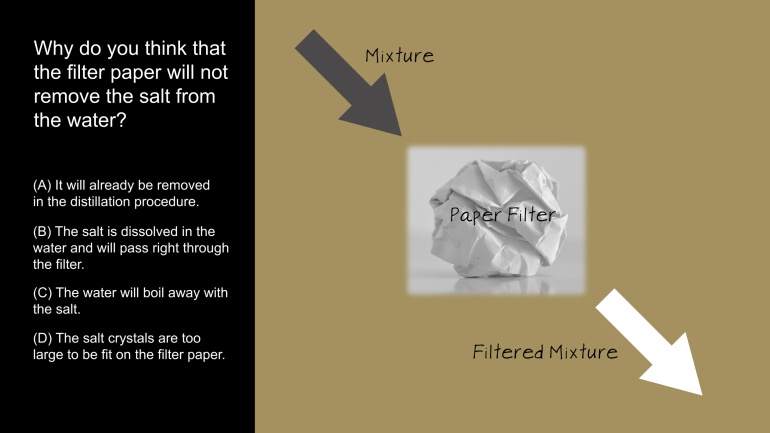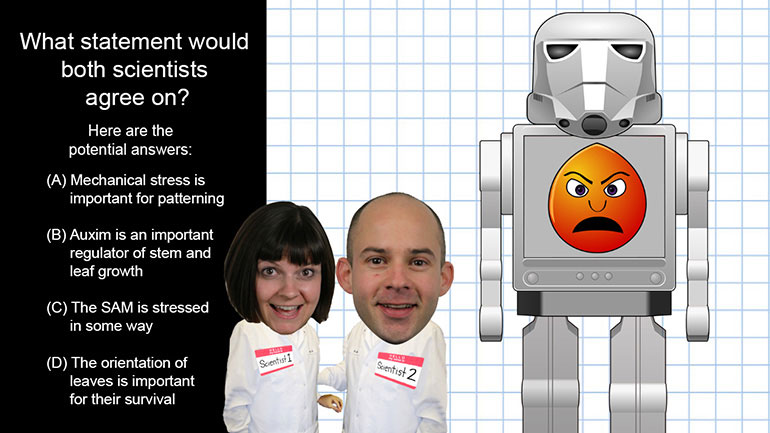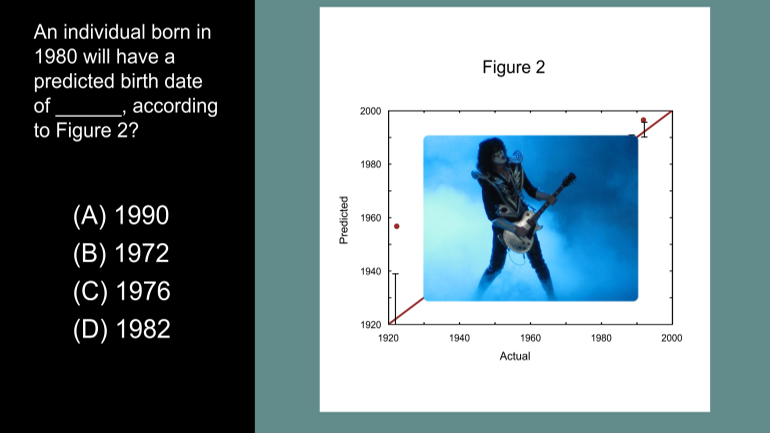ShmoopTube
Where Monty Python meets your 10th grade teacher.
Search Thousands of Shmoop Videos
ACT Science 2.7 Data Representation Passage 195 Views
Share It!
Description:
ACT Science: Data Representation Passage Drill 2, Problem 7. How is the data presented in Experiment 3 different from the data in Experiments 1 and 2?
Transcript
- 00:03
Here's your shmoop du jour, brought to you by KIN, RHO, DAF, PAR.
- 00:07
The protein consortium.
- 00:09
For when you're really in the mood for food.
- 00:18
How is the data presented in Experiment 3 different from the data in Experiments 1 and 2?
- 00:23
The potential answers...alright, let's go...
Full Transcript
- 00:26
Alright, this question is asking us to see how the data in Experiment 3 is presented
- 00:30
differently from the data in Experiments 1 and 2.
- 00:33
Well in the description of Experiment 3, the passage tells us that Experiment 3 looked
- 00:37
at four specific proteins in fem-1(-) and gon-2(-) worms....KIN, RHO, DAF, and PAR.
- 00:46
The graphs shows the absolute level of protein aggregation in young and old worms.
- 00:50
In contrast, Experiments 1 and 2 looked at a large number of unidentified proteins and
- 00:55
plotted them against young and old worms.
- 00:57
Both experiments look at the difference in protein aggregation between young and old
- 01:01
worms..so the biggest difference is that Experiment 3 looks at individual proteins.
- 01:06
The answer... (A)!
Up Next
ACT Science: Research Summary Passage Drill 2, Problem 1. Why do you think that the filter paper will not remove the salt from the water?
Related Videos
ACT Science: Conflicting Viewpoint Passage Drill 1, Problem 1. What statement would both scientists agree upon?
ACT Science: Data Representation Passage Drill 1, Problem 1. What do the statistics in Figure 1 suggest?
ACT Science: Data Representation Passage Drill 1, Problem 2. Which of the following is a variable in Figure 1, but not in Figure 2?
ACT Science Data Representation Passage: Drill 3, Problem 5. According to Figure 2, what birth date will be predicted for an individual actual...




